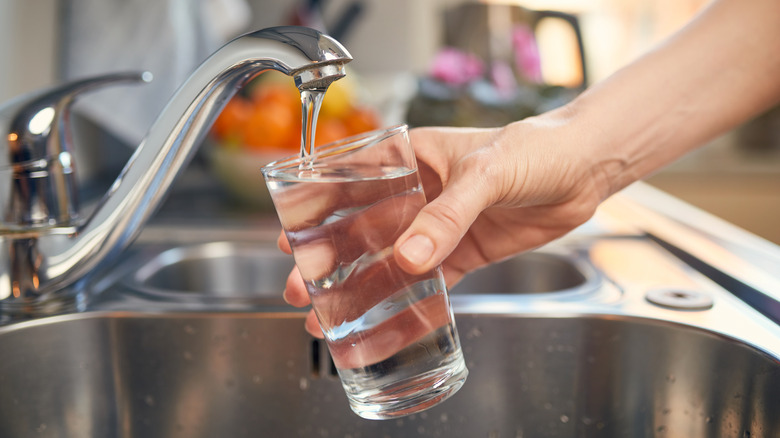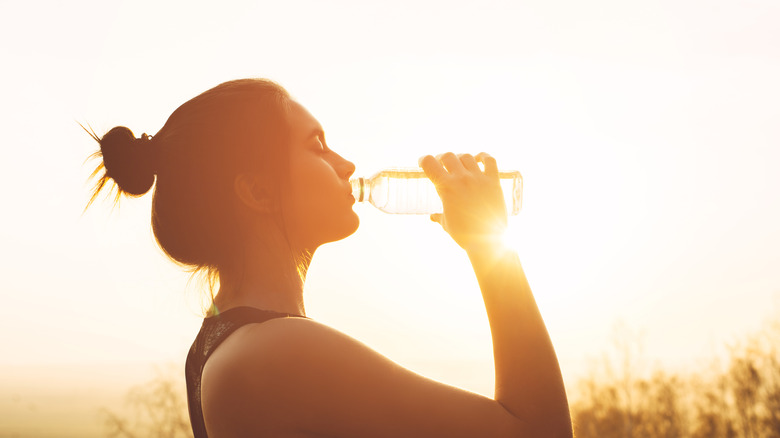Why Tap Water Isn't As Bad As You Think It Is
There are tons of options to choose from when it comes to water. Whether it be still, sparkling, bottled, or good ol' tap water, there's a choice for every water-lover's palate.
Tap water has a reputation for being less safe or desirable than bottled water, but in reality, filtered tap water is generally just as safe as its bottled counterparts. Both tap and bottled water are monitored for safety using similar standards. However, this monitoring is conducted by two different agencies. The Food and Drug Administration (FDA) oversees the safe manufacturing of bottled water in the United States and the Environmental Protection Agency (EPA) regulates tap water by requiring water utility companies to provide annual quality reports (via Mayo Clinic). Those on private well systems will want to regulate and test their water quality on a regular basis, as the EPA does not have jurisdiction.
With these safety regulations in place, it can be argued that filtered tap water may be of better quality than bottled or regular tap water, due to the advanced water filtration systems that are in place (via WaterCare). The process of water filtration involves removing the impurities and contaminants in the water, while retaining the healthy minerals for us to consume. This results in both a better tasting and smelling water than unfiltered tap water.
How ditching bottled water can help the environment
Unlike bottled water, other benefits of using filtered tap water include the reduced cost and the eco-friendly factor. The one-time cost of a professional water filter may seem like a big investment, but over time, you will save money that would otherwise be used on repeatedly purchasing bottled water, while also limiting your use of plastic.
To piggyback on the environmental benefits of filtered water, know that it takes a plastic water bottle 300 years to break down, and requires more than three times the amount of water to produce the bottle itself, than it does to merely fill the bottle, according to WaterCare.
So who wins the debate between tap water and bottled water? While the choice should be based solely on personal preference, it should be noted that some people are more prone to illness from contaminants in drinking water than others. This means that additional precautions may need to be taken. If you are undergoing chemotherapy treatments, have HIV or AIDS, have received a transplant, or are pregnant, an older adult, or child, you may be more at risk (via Mayo Clinic). It is best to speak with your medical team to discuss the best water choice for your personal health.


